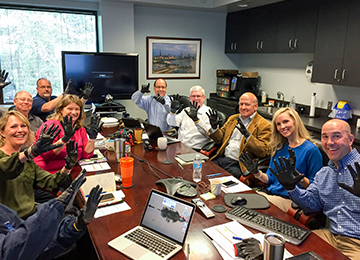Relax: I’m not going to talk about heart attacks or medical issues.
June is National Safety Month. Safety training can be mostly about the what, how, when, where, and why regarding safety; and this level of training leads to a cerebral/rational understanding of what it means to work safely. However, if this is the extent of what being safe is all about, you are missing out on a very important aspect of safety. Each of us has to internalize what we learn into our heart. Our heart is where our values, passions, emotions, dreams, and love of family, friends, pets, activities, sports, etc. live. Safety needs to be absorbed at the heart level – safety is personal. Unless you absorb safety at an emotional and personal level, you will not be as safe as you think.
Let me give you an example. Which statement is more motivating to you: he smashed his index finger on his left hand and was taken to the hospital, or he smashed the index finger on his left hand and will no longer be able to play the guitar? Both statements are factual, but I’ll bet that the second one hit you in your gut, your heart level. You may play a different musical instrument and say to yourself: “Gee, I want to still be able to play the piano (or fill in your favorite instrument or activity) so I’m going to do this activity more safely.” I bet you pictured yourself with some activity in that second statement that you felt at a heart level: that was probably the more effective message.
The why of safety needs to be discussed through pictures, stories, and meaningful examples. If we aren’t effective in communicating at a heart level, then safety isn’t going to be a value that travels with each individual to their respective job site. We want each employee’s goal to be going home to family, friends, and pets the same way he/she came to work – uninjured.
You will never know the incidents and injuries that you averted by you asking yourself what the dangers are around me, and what are safer ways of doing my job at this moment? It’s better to be “HEART-SAFE” than to be heart-broken.
So I’ll ask the question again: Are you going to be HEART-SAFE?
Author: Jim Carpenter, PE
Jim began his career as a geotechnical engineer at Purdue University and is one of three remaining employees that started ECS in 1988. His most challenging and important project was when he was the geotechnical engineer for the Phoenix rebuilding project after the attack on the Pentagon on 9-11. Now as chief engineer, Jim is excited about developing a safety culture where working safely and returning home uninjured each day is the first priority. Outside of the office, he enjoys photography and Formula 1 racing.

